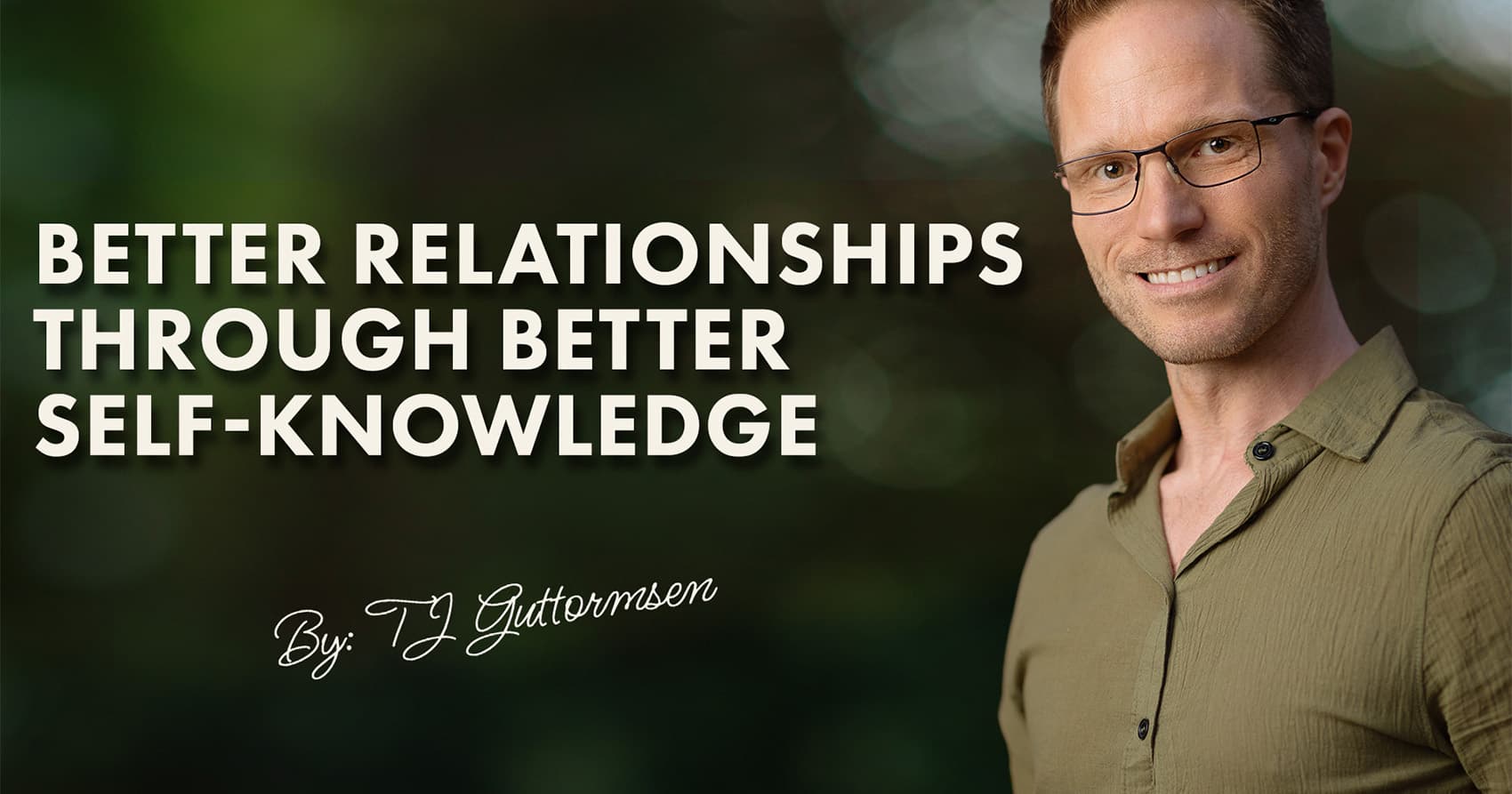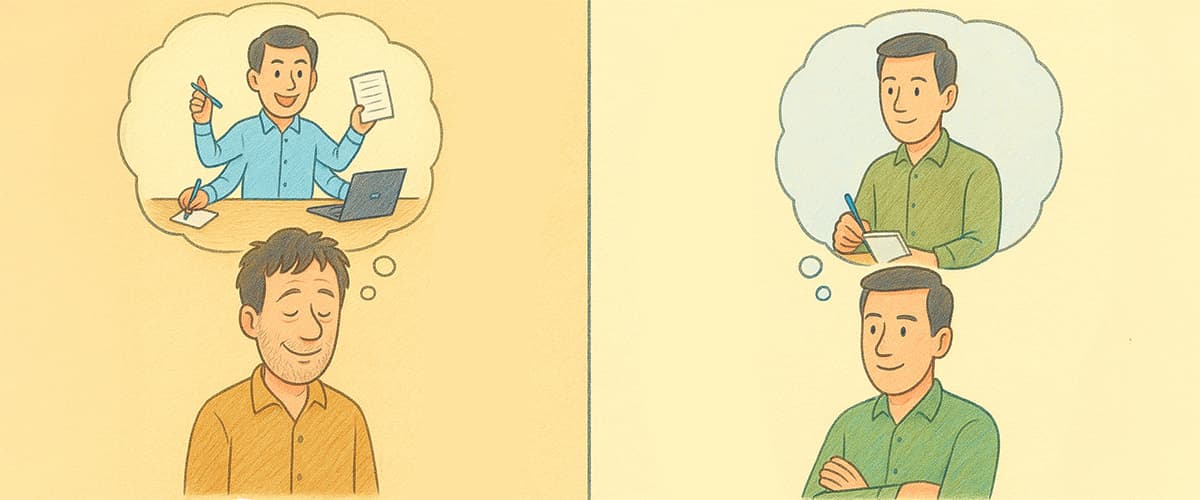There are many things that can improve our relationships, but research shows that knowing yourself in this way is one of the most important ones.

Want to improve your relationships with colleagues, friends, family, or romantic partners?
There are many ways to do that, of course, but researchers from UC Berkeley, Washington University, and the University of Arizona were particularly interested in one key question:
Do people who really know themselves have better relationships?
To find out, they did something clever.
Instead of just asking people about themselves (which can be unreliable), they used a special device called the Electronically Activated Recorder (EAR) that captured snippets of participants' daily conversations and activities over four days.
They then compared how people thought they acted in their daily lives with how they actually did, based on these audio recordings.
The study participants whose actual behavior closely matched how they expected themselves to act were considered to have high self-knowledge.
And the results were clear: the friends and families of the high self-knowledge crowd reported liking them better, feeling closer to them, and having higher-quality relationships with them than the friends and families of those on the lower end of the scale did.
The reason for this effect is likely simple: people who know themselves well—their strengths, weaknesses, preferences, and typical behaviors—will come across as more reliable, trustworthy, congruent, and authentic.
They won’t seem like they’re pretending to be someone they’re not, they’re much less likely to make plans or promises they can’t or won’t keep, and they’ll be more consistent in their behaviors, opinions, and choices.
All of this helps build trust and genuine connections in relationships.
People who lack self-knowledge, on the other hand, might—unknowingly and without intending to—create more friction in their relationships.
They’ll more often break plans or promises, act differently than they’ve said they would, seem to change their mind or values without warning or reasons, or simply seem dishonest.
This doesn’t happen because they’re bad people or because they don’t value their relationships, but because they believe they’ll want or be able to do things that simply aren’t natural—or even possible—for them.
And that can easily lead to disappointment, misunderstandings, distrust, and conflicts.

The good news is that self-knowledge can be improved. And that’s something we should all work on regularly throughout life, as we grow and age.
Here are a few simple exercises that can help:
Track what you actually do on your typical days in a simple log.
Log the things you do regularly that affect the people in your life, to keep track of things like how long it takes and which choices you usually make.
How long does it take you to get ready before meeting friends? What kind of restaurants do you tend not to want to eat at? Which kinds of plans do you often cancel—and which do you not? And whatever else happens regularly in your life with or around the important people in your life.
This will help you discover patterns and get to know your own needs, preferences, and habitual behaviors in much more detail.
Reach out to people who know you well and ask them to describe your typical behaviors and patterns.
Questions like "What do I seem to spend most of my time doing?" or "How would you describe my communication style?" can provide valuable insights, but take some time to think about your everyday life and base your questions on that.
Leave your pride and defensiveness at the door during these conversations, and don’t discount something just because you disagree with it. Write it down, and check with others in your life whether it sounds accurate to them.
If multiple people who know you well all agree on something that you don’t, odds are that they’re seeing something that you’re not aware of.
Set aside time in the evening to honestly assess your actions and reactions that day.
When you catch yourself saying things like "I'm not usually like that" or "That was unexpected," dig deeper. Are you sure? What evidence do you have?
And when you recognize things that are typical of you, make sure your thoughts and beliefs about yourself match those findings. If they don’t, that’s an area of improvement.
Also, pay attention to situations where people close to you seem surprised by your actions, or when there's a disconnect between your intentions and your follow-through. These moments often reveal blind spots in your self-knowledge.
In all of these exercises, when you discover things that are different from the expectations or beliefs you have about yourself, you have a choice to make:
Are you going to adjust how you see yourself to match your actual behavior, or adjust your behavior to more closely match how you see yourself?
Either approach will make your self-knowledge more accurate, but remember that changing our typical behavior takes focused effort over time—also known as practice.
That means that while you work on making those changes, it’s important to keep logging, reflecting, or getting feedback to make sure that the changes are actually taking place.
As the ancient Greek aphorism carved into the Temple of Apollo advised:
"Know thyself."
It turns out this wisdom isn't just good for personal growth – it's also the foundation of meaningful relationships with others.
Study: Tenney, E. R., Vazire, S., & Mehl, M. R. (2013). This Examined Life: The Upside of Self-Knowledge for Interpersonal Relationships. PLOS ONE, 8(7), e69605. https://doi.org/10.1371/journal.pone.0069605
Hi, I'm TJ Guttormsen.
Since 2009 I’ve coached clients ranging from Olympic gold medalists and billionaires, to people who simply want more out life.
I’ve done over 100 national media appearances, published books, and created online courses that have earned several “Highest Rated” titles from their 11 000+ members.
Today I coach clients from all over the world, and teach seminars for business and events from my home in Las Vegas.
Come join me in my Facebook group, follow my Instagram, or subscribe to my YouTube channel for fresh content on a regular basis.

